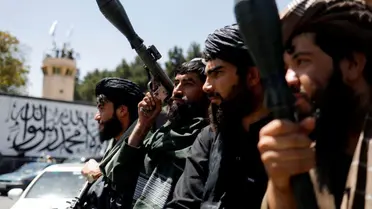The Taliban administration now controls 39 Afghan embassies and consulates globally, three years after taking over Afghanistan following the collapse of the Western-backed government, the acting foreign ministry announced on Thursday.
While no international government has formally recognized the Taliban, China and the United Arab Emirates (UAE) have permitted Taliban-appointed diplomats to operate in their capitals.
Many governments, particularly in the West, including the United States, have maintained that formal recognition of the Taliban will remain on hold until the regime addresses concerns about women’s rights, re-opens high schools and universities to girls and women, and grants them full freedom of movement.
The Taliban claims it respects rights in accordance with its interpretation of Islamic law, adding that restrictions on its banking sector and a lack of international recognition are impeding the country’s economic recovery.
At a press conference in Kabul, the Taliban’s acting foreign minister, Amir Khan Muttaqi, confirmed that the Ministry of Foreign Affairs now oversees 39 embassies and diplomatic missions worldwide. “Thirty-nine embassies and diplomatic missions are now under the central authority of the Ministry of Foreign Affairs,” Muttaqi said.
He added that over the past year, the Taliban had sent diplomats to 11 countries, including Turkey, Russia, Iran, and Pakistan. Muttaqi also announced plans to dispatch a new ambassador to Uzbekistan this week and expressed optimism that Russia would soon remove the Taliban from its list of terrorist organizations.
Since the collapse of Afghanistan’s previous republic in 2021, the status of many foreign embassies has been uncertain, with several issuing documents such as visas and passports that the Taliban has sometimes refused to recognize.
The Taliban has appointed its own diplomats to head several embassies, including ambassadors accepted in Abu Dhabi and Beijing, as well as a chargé d’affaires in neighboring Pakistan. In some cases, diplomats appointed under the former government continue to work alongside Taliban officials.
In July, the Taliban cut ties with at least 14 Afghan diplomatic missions, primarily in Europe, declaring it would no longer honor passports and visas issued by these embassies.
The Taliban argues that international sanctions and the ongoing lack of formal recognition are hampering Afghanistan’s economic recovery. Additionally, the absence of recognized Afghan diplomatic missions has caused complications for Afghan nationals abroad, particularly regarding the issuance of visas and passports.

